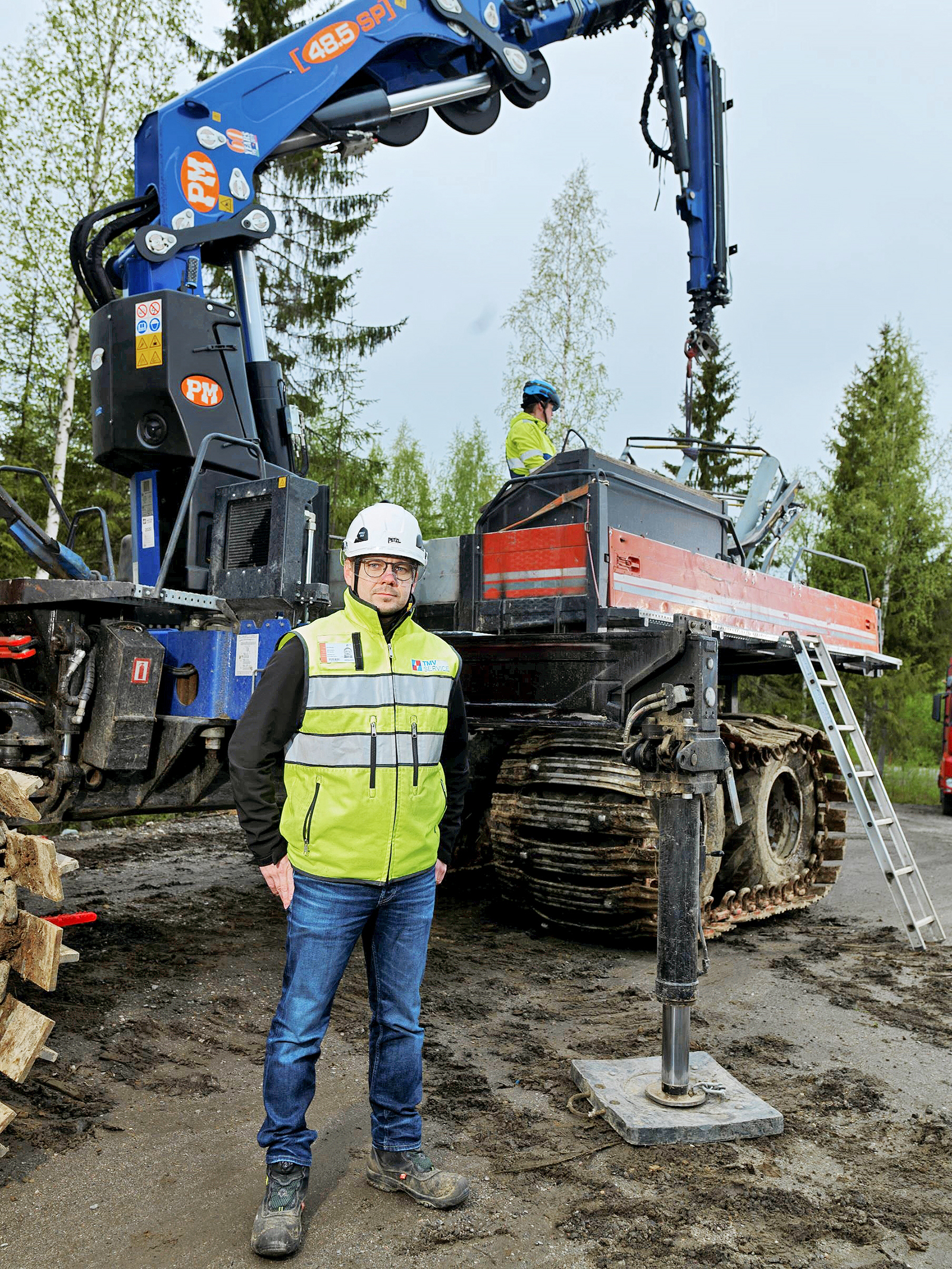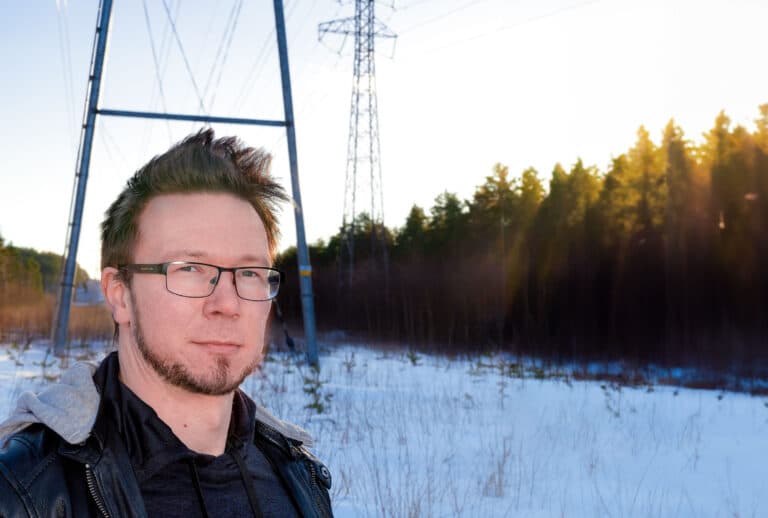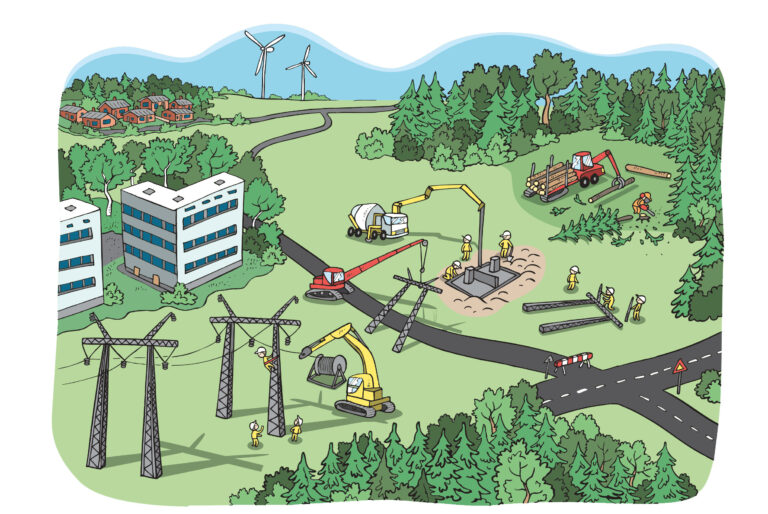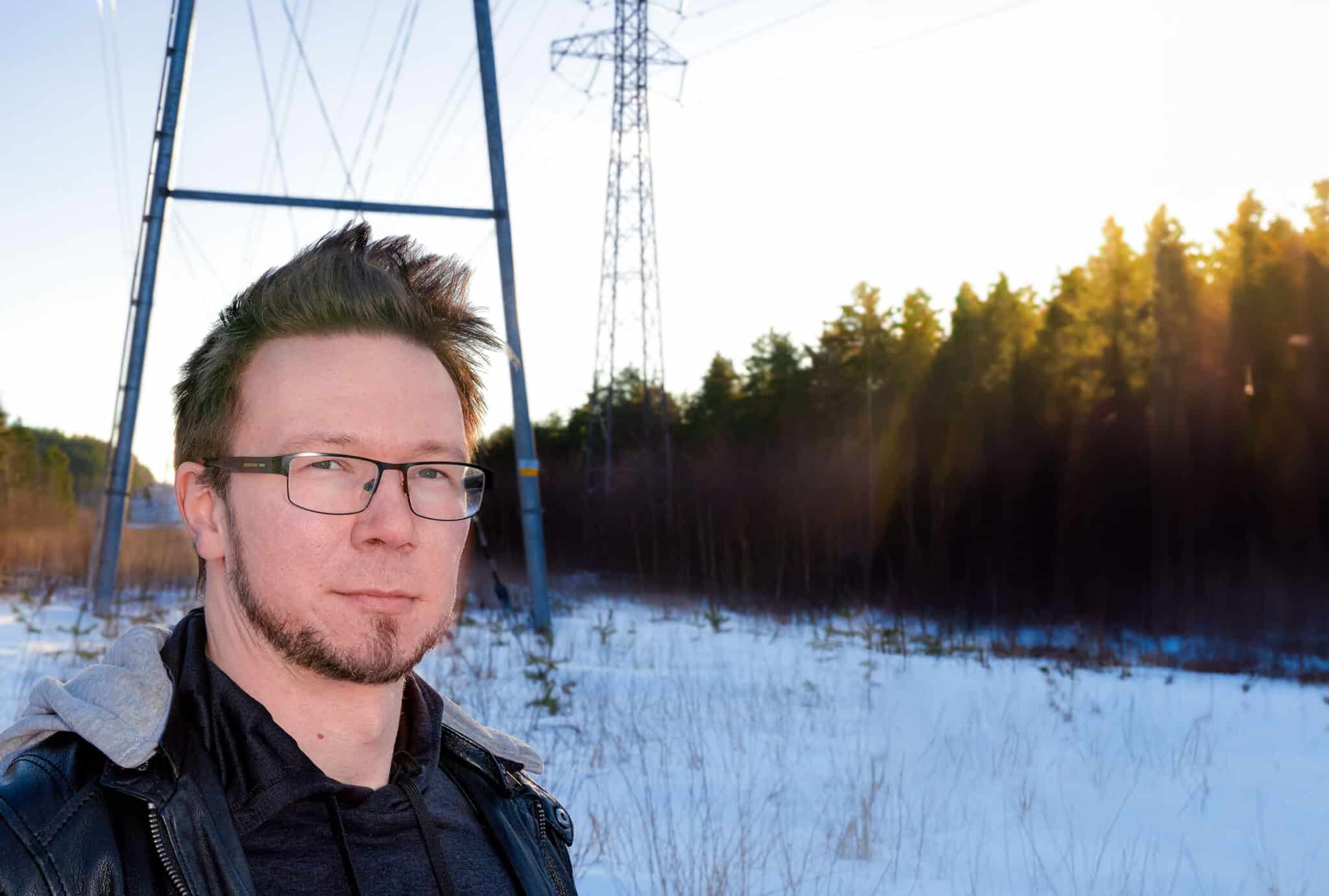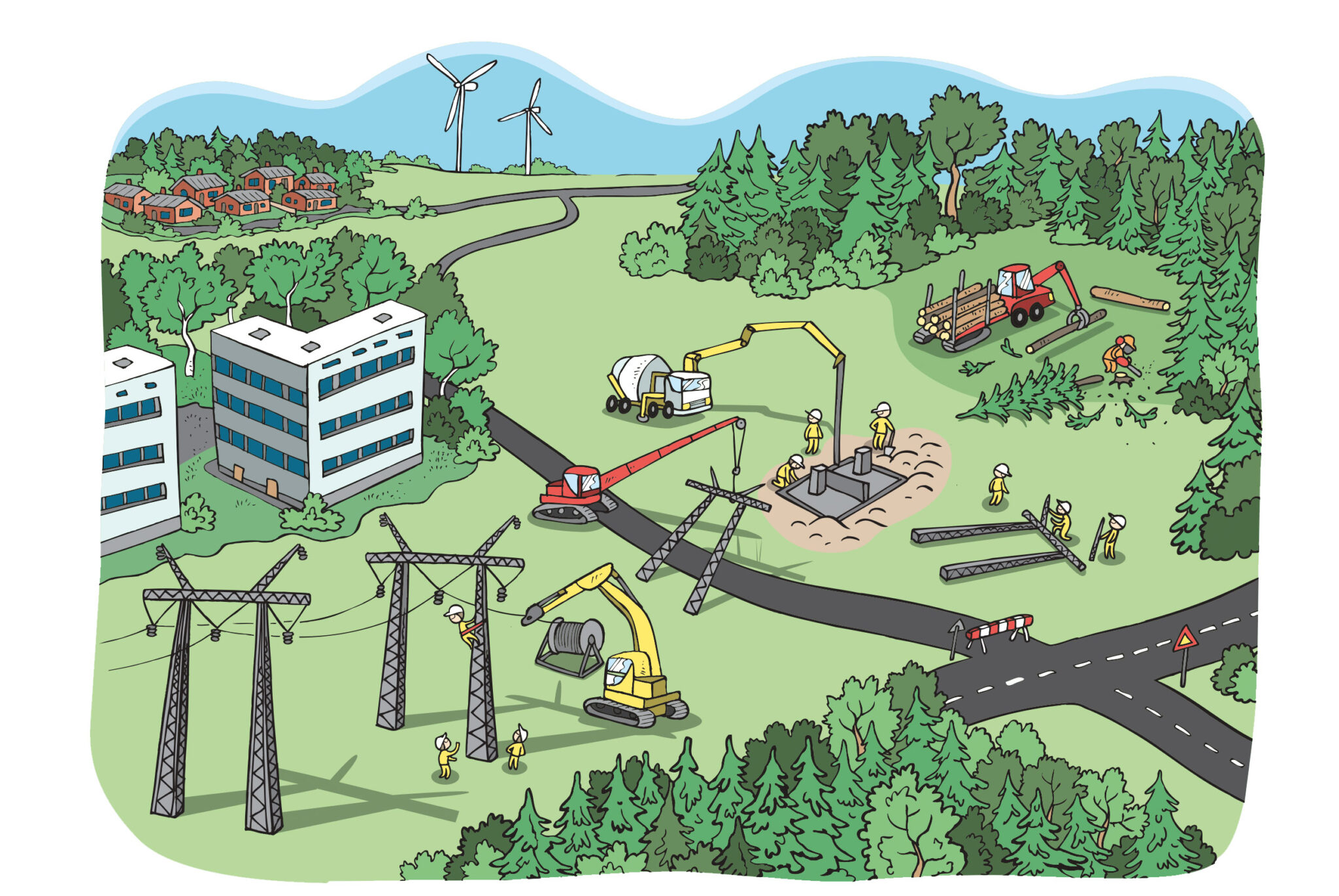December 2020, a subcontractor was working on a forest harvester equipped with an installation crane on the Kontiolahti–Palojärvi transmission line worksite. The subcontractor was using the crane to take down the conductors in a transmission line that was being demolished.
The forestry machine had just been moved and set up in the tower location, and the employee was supposed to get onto the platform. He climbed onto the block as usual but, in doing so, the foot that was on the block slipped, and the man fell about 1.5 metres onto his back. The subcontractor was using the required personal protective equipment, such as a helmet with a chin strap. The site manager was on the scene immediately after the fall, and the injured person was treated quickly. The reason for the accident was the difficult route to the machine’s platform and the slippery conditions on the block.
Accidents are handled immediately on the worksite
When the accident occurred, work was suspended as soon as it was safe to do so.

“Our worksite routines involve reviewing the events of the day at the start and end of each day. Naturally, the incident was discussed. Accidents are a cause for concern, so it is better to suspend work,” says Jani Rintala, Worksite Project Manager from TMV Line Oy.
The accident occurred on a Friday, and work resumed the following week. Soon after the accident, safety toolbox talks covered the incident, and employees were reminded to take special care when mounting the machine’s block. They were also reminded that the steps and platforms on machines may be slippery.
All occupational accidents on Fingrid’s worksites are entered into the Quentic reporting system and investigated by the client and the supplier. The aim of investigating accidents is to identify the causes and determine the necessary measures to prevent similar accidents from occurring in the future. The aim is not to identify a guilty party; it is to learn from accidents that have occurred.
Safety improved substantially
As a result of the accident, TMV Line immediately began developing new safety solutions for its equipment.
“The users of machines have a wealth of valuable experience. Ascending onto the block was identified as a clearly high-risk work step,” Jani Rintala states.
The access route was improved by adding ladder and step solutions, access bridges and railings. The access route material is toughened perforated steel, which is not slippery and does not collect water. Railings were added to the sides of the block for employees to hold onto. Previously, it was necessary to ascend to the upper platform during refuelling, but structural changes enabled the refuelling pipe to be attached from the ground level. According to the users of the machines, the new steps and access routes have made it easy to ascend to the block, and the prior practice now seems very laborious in comparison.
“The changes to our company’s machine were made during the Christmas break on the worksite. The injured subcontractor made corresponding additions to its own equipment. As a consequence of the accident, we identified a need for improvements to prevent similar accidents from occurring again,” Jani Rintala says.

